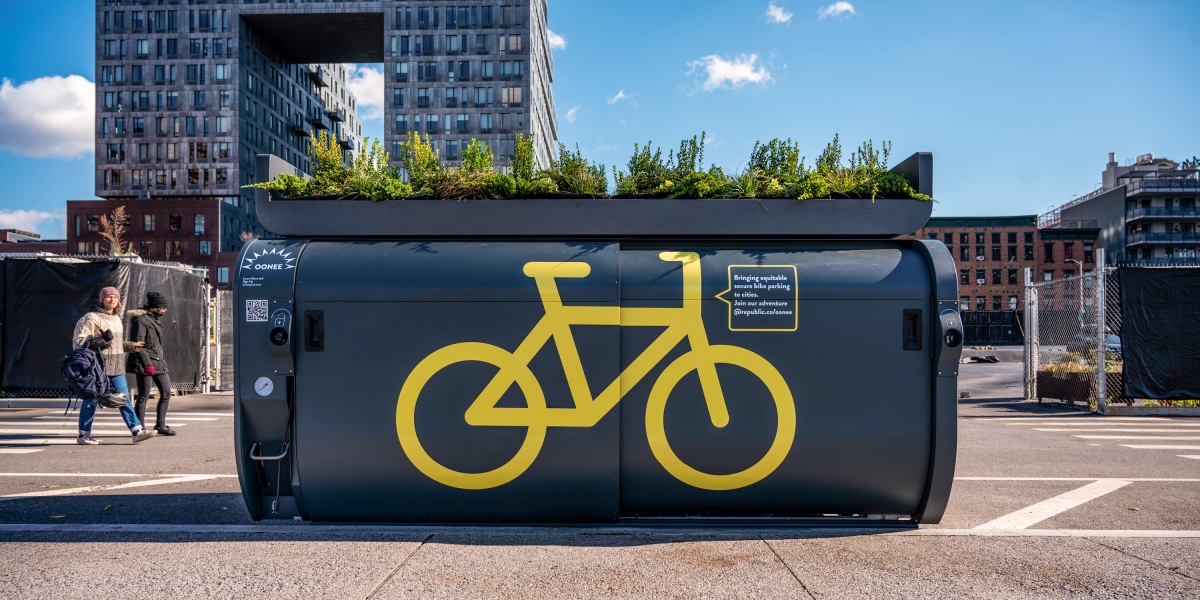
But the company’s mission is also about redressing the inequities of the cycling world, Stuart says. Bikes are often perceived as an amenity for gentrifiers, especially white upper-class professionals. But those with the lowest levels of income are the most likely to rely on bikes for commuting, and they are also much more likely to experience economic hardship if their ride is stolen.
“This misunderstanding of who relies on cycling for transportation reverberates to where we are today with a lack of cogent and compelling infrastructure to support cycling,” says Stuart, who is Black. He says he has intentionally tried to staff Oonee in a fashion that reflects the demographics of the city and its bike riders.
Oonee is still in its early days, with about 4,000 users across a handful of pods in New York and Jersey City, just across the Hudson River. The contingent of dedicated users is smaller; Stuart says about 10% of the members represent 90% of the usage. But the stage is set for growth: the company already has plans to improve its geographic coverage, with nine more full-size pods as well as dozens of smaller ones called “Minis,” which hold up to 10 bikes.
There is a wider opportunity right now to make protected bike parking a norm in US cities, Stuart says. “The average person is socialized to bike-share, but 15 years ago that wasn’t the case,” he says. “We’re going to raise the bar. Cyclists are going to say, ‘Why isn’t this in my city?’”
